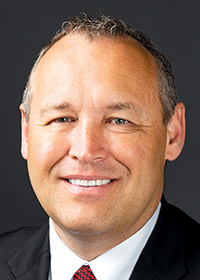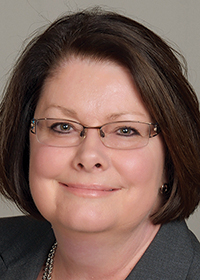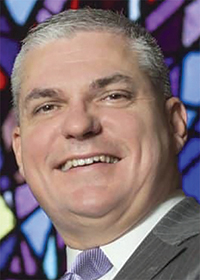The University of Constant Change: Higher education leaders discuss technology, ‘K-16’
by August 21, 2018 4:09 pm 512 views

Society will change in many ways during the next 30 years, and thanks to changing demographics, technology and ever-changing workforce demands, higher education may undergo the most dramatic transformation of all.
Talk Business & Politics asked three higher education administrators from Northeast Arkansas — Arkansas State University Jonesboro campus Chancellor Kelly Damphousse, ASU-Beebe Chancellor Jennifer Methvin, and former Black River Technical College President Eric Turner — to share their insights into how the world of higher ed could change in the coming decades.
TB&P: What do you predict could be the most dramatic change that takes place in higher education by 2050 from the perspective of higher education officials?
Kelly Damphousse: Higher education in America as we know it will change more in the next 30 years than it has in the past 200 years. It seems too obvious to point to the advent of the internet and technology, but those are indeed tremendous interrupters of how colleges and universities are doing what they do. Higher education will have an increased expectation to show why it is needed and the extent to which it is worth the investment when knowledge becomes increasingly available.
Of course, we will point to the difference between “knowledge” and “understanding” and the added value that college provides through the unique leadership and mentorship opportunities that our faculty members provide. College is less about learning facts and more about teaching people how — and why — to think. The extent to which our arguments will be compelling is uncertain to me.
Jennifer Methvin: Technology will continue to evolve, and higher education must smartly and efficiently evolve with it. Thirty years ago, some educators were frightened that a VCR tape might put a faculty member out of a job. However, education is a complex, human experience, and that obviously did not happen. Instead, we learned slowly over the years how to use video to create engagement and enhance learning.

Students will always expect us to utilize the latest technology, and their use of personal technology will impact how they learn. Our greatest challenge in higher education is always to leverage that technology to increase active student learning while we manage the costs of being on the cutting edge.
Eric Turner: If the past 20 years is any indication, technology will continue to disrupt higher education as we know it today. Not only will this affect how we deliver education, our striving to keep up with the costs will continue to be challenging.
TB&P: What do you predict could be the most dramatic change that takes place in higher education by 2050 from the perspective of students?
Damphousse: Colleges are becoming more attuned to student success, so students should see increasing emphasis on an evolving higher education model that meets students where they are, literally and figuratively. Student mobility and the increasing competition for students will change how universities cast themselves and their relationships with their future and current students. Higher education is evolving to a higher plane that focuses on access and student success.
Methvin: I think over time, higher education will be less about a defined amount of time one spends at a college or university — i.e., a two-year degree or a four-year degree — and more about a lifetime of developing skills and knowledge. In fact, I think we are making that transition now. Employers are asking us to break programs into micro-credentials. Students are demanding instruction in compressed time formats so they can earn certificates and degrees more quickly. Working adults are returning to higher education to develop new skills to make themselves more marketable. I anticipate that over time, the student’s higher education experience will be much less standardized and much more customized to meet these various demands.

Turner: Technology will have a role to play for sure. I am concerned that society, students and parents undervalue education. There is too much emphasis on the perceived economic value of education and the return on investment. Put differently, education is viewed as a commodity in some circles, and if there is no direct linkage to earning power, then some are dismissive of educational value, but this is short sighted. Education contributes to the development of the so-called soft skills shortage, e.g., critical thinking, problem solving, etc.
TB&P: If you could wave a magic wand — take an action — today that would positively impact higher education by 2050, what would you do?
Damphousse: I would work toward removing, or at least blurring, the lines between K-12 and higher education. So much of our success in higher education is determined by what happens in K-12, and I would love to see far greater collaboration in this realm. Think “K-16”.
I believe that education is not just the secret to success, but a fundamental pathway in helping young people achieve more than their parents did. It is also the great equalizer in American society. Improving access to college and then student success should be a goal for all of us, and I believe that higher education has a role to play in this space. Too often, K-12 is blamed for the lack of academic preparation that many of our incoming college students bring to bear.
I would love to see greater collaboration between higher and common education. This is not an “us” vs. “them” situation — it is a “we” situation. I believe we are more likely to create solutions by working together.

Methvin: If I could, I would create a public education system that focuses heavily on helping young people explore their talents and interests, and then connect those interests to career pathways. Students who come to higher education having put little effort into choosing a program or major are the hardest students for us to retain to graduation. These students, even if they eventually find their way to a program that actually is a good fit for them, often take more time to complete a certificate or degree and leave higher education with more debt than students who arrive excited and focused on their futures.
TB&P: There has been talk in recent years — especially during presidential election years — about free tuition or significant tuition coverage for all or some U.S. public colleges and universities. Do you believe this will be a reality in 2050? Why or why not? How will this free education be paid for?
Damphousse: There is really no such thing as “free education.” It has to be paid for by someone. Education at a public college or university was once heavily subsidized by state taxpayers who sought to invest in their future by investing in their young people. Funding support from state governments has declined over the years for many reasons. Unfortunately, the result has been increased tuition and fees, meaning that students — and their parents — now have to pay a greater share of the cost of their education. The impact that increased college costs has for our students is worrisome to college leaders because we are concerned that many otherwise qualified young people are forgoing or not completing college because they can no longer afford it.
While most colleges work hard to minimize tuition increases through cost-containment, private fundraising and by creating innovative partnerships, the quality of a college degree eventually will decline without increased revenue. The only way college becomes free to students is if other funding sources fill the gap the lost tuition would create.
Methvin: It would take an enormous increase in the public investment in higher education to make college free for all, so I do not believe we are headed in that direction, not even by 2050. I am hopeful we can reverse the trend of declining state-level funding for higher education in our nation and increase private and corporate investments in expensive instructional areas so that quality programs in rewarding professions can be offered to students at manageable costs.
For instance, we cannot continue at one and the same time to one, bemoan our inability to produce enough Science, Technology, Engineering, and Math [STEM] graduates in the U.S.; two, not invest in the equipment and talent it takes to offer such programs; and three, pass on the rising costs of operations to students. We have to balance public, private, and student resources as an investment in people and in the health of our economy.
Turner: I hope it does not become a reality. There needs to be some investment, however modest, in one’s post-secondary education. Otherwise, it runs the risk of being undervalued. After all, people do not think twice about purchasing depreciating assets such as automobiles, latest technology, etc., yet refuse to invest in themselves with education. Self-improvement is an appreciating asset.
TB&P: Do higher education institutions run the risk of pricing themselves out of the market by making it too expensive to attend college?
Damphousse: I worry about this all the time, but not from a “business model” perspective. I am much more concerned that we run the risk of pricing our students out of the market. If you believe as I do that a college degree is invaluable, and that few things are more expensive than an unfinished college degree, then you also worry about how the increased cost of college attendance risks blocking access to higher education.
Lower cost alternatives to the current higher education model may find a way into the marketplace, but I worry about how that will create a two-tiered system — one in which disadvantaged students will have less access to the best higher education system in the world than they currently have.
Turner: This question has lingered for a long time. I would say it depends on the institutional mission and targeted demographic. Tension always exists [to] maintain accessibility, but also ensuring expected levels of quality.
–––––––––––––––––
Editor’s note: Eric Turner conducted his interview for this story with Northeast Arkansas Talk Business & Politics before he announced his resignation as Black River Technical College president.
